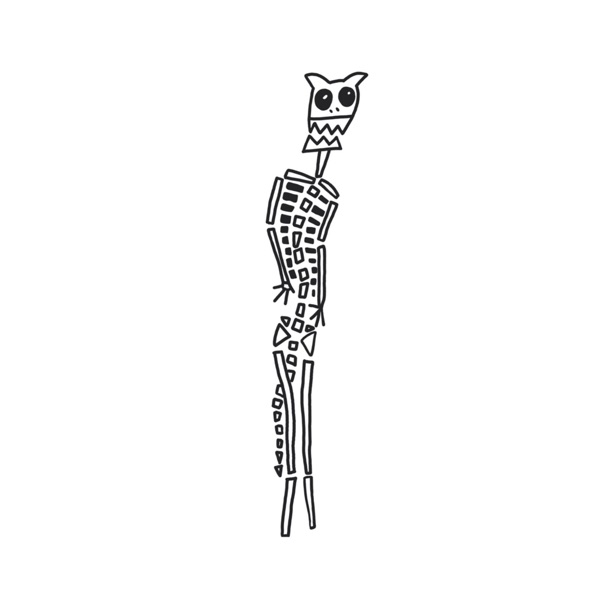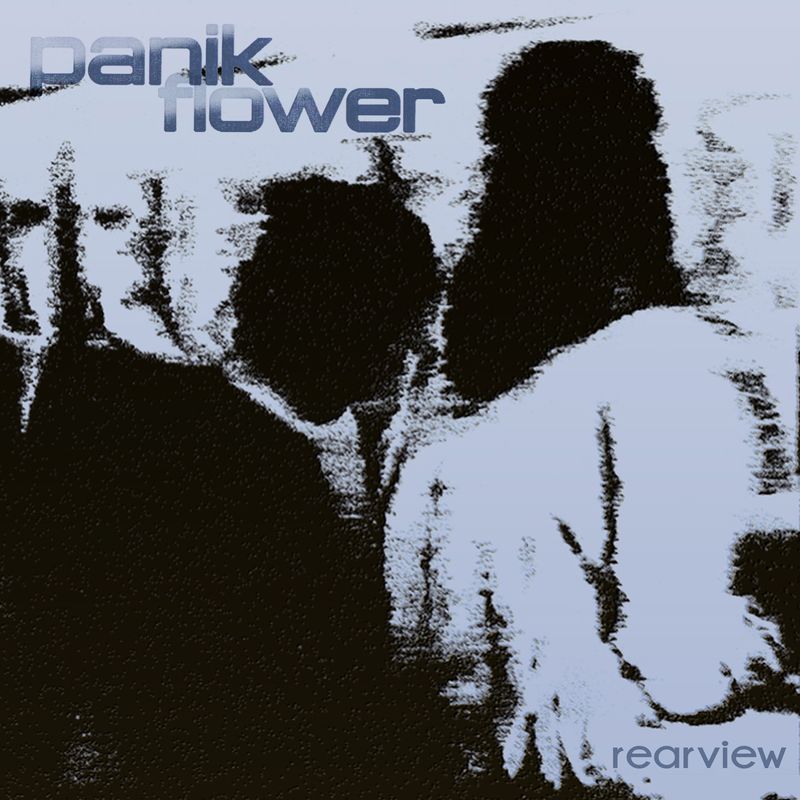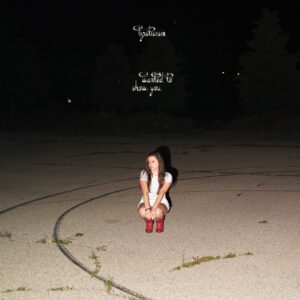Apacalda showed up here back in November, when she released the single “Dead Weight”. It’s a grungy, heavy and difficult song about sexual assault and its aftermath, inspired in part by watching a loved one struggle with addiction. It’s a song you won’t forget, even if it’s not your cup of tea. The gradual build from whispered confessional to guttural scream is a perfect delivery of Montreal-native Cassandra Angheluta’s direct and harrowing lyrics.
Her debut album There’s A Shadow In My Room And It Isn’t Mine carries that same emotional force across 11 songs. It’s an apt title for a record that feels haunted by real and imagined threats, and addresses themes of death, intrusive thoughts, abuse and abandonment. Despite the nightmarish content, there’s something redeeming and hopeful about the record. Angheluta, who works as a funeral attendant in her day-to-day life , thinks about death often. She describes the album as being “very much about death and rebirth. The symbol of an ouroboros, constantly dying and rebirthing”. There’s A Shadow In My Room And It Isn’t Mine is a journey through the shadows with the explicit aim of finding a way back to peace and self-acceptance.
The songs on There’s a Shadow in my Room are cohesive but unpredictable, from the raw grunge of “Dead Weight” to dark synthpop of “Darkness” to the deep psychedelia of “Almost Burnt the House Down”. What unifies them is Angheluta’s fearless and introspective lyrics, which delve into deeply personal territory without ever veering into self-pity or feeling staged. Her confessional writing feels raw and immediate, like she’s working something out in real time.
In her Backstory, Angheluta describes how the death of her father at young age shapes her art today:
My music doesn’t shy away from darkness; it leans into it. I explore the themes that have gutted me, choosing to face pain head-on rather than bury it. This album is an extension of that journey — an honest, vulnerable confrontation with the emotional weight we carry, the shadows we live alongside, and the healing we seek through acknowledgment.
“I think I’ll wait another day / Before I sink this ship,” she sings on “Wait Another Day,” in a moment that captures the record’s brutal emotional realism. It’s not melodrama, it’s survival.
This record is a testament to the idea that true healing often requires radical honesty with yourself. It’s messy and uncomfortable, but Angheluta’s album delivers a cathartic experience. It’s an affirmation that even in the darkest corners of our minds, there’s undeniable power in confronting what haunts us and choosing to move through it.
Further Reading
The Backstory: There’s a Shadow in My Room and It Isn’t Mine












